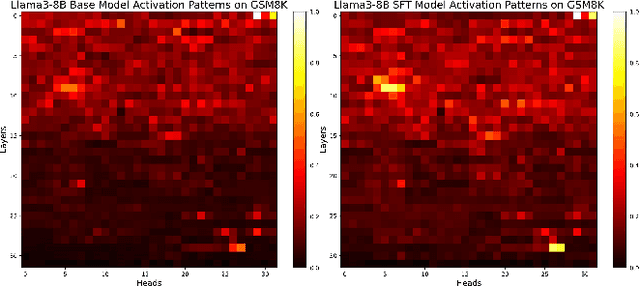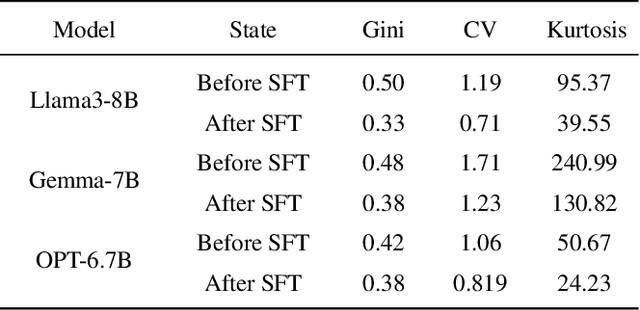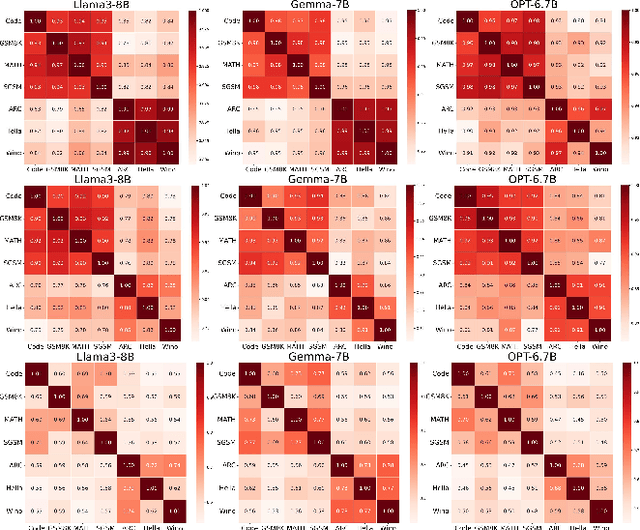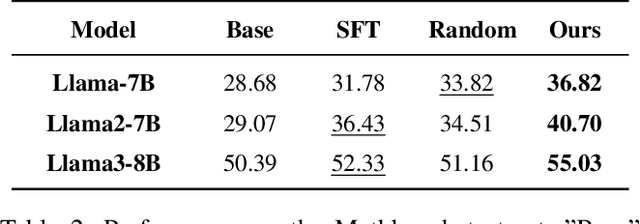Supervised Fine-Tuning: An Activation Pattern Optimization Process for Attention Heads
Paper and Code
Sep 24, 2024



Though demonstrating promising potential, LLMs' performance on complex tasks, such as advanced mathematics and complex disease diagnosis is still unsatisfactory. A key issue is the present LLMs learn in a data-driven schema, while the instruction dataset about these complex tasks is both scarce and hard to collect or construct. On the contrary, a prominent phenomenon is that LLMs can learn rather fast on those simpler tasks with adequate prior knowledge captured during pretraining stage. Thus, if the prerequisite and mechanism of such rapid generalization could be elucidated, it could be highly beneficial in enhancing the efficiency and effectiveness of the LLM's ability to learn complex tasks. Thus, in this paper, we employ a gradient-based method, to dissect the process that the SFT process adapts LLMs to downstream tasks via the perspective of attention patterns. We find that: (1) LLMs selectively activate task-specific attention heads during SFT; (2) activation patterns for complex tasks are combinations of basic task patterns; and (3) changes in a few parameters can significantly impact activation patterns after SFT on a small number of samples. Based on these insights, we conduct experiments to examine whether these conclusions could effectively enhance the efficiency and effectiveness of SFT, particularly in handling complex tasks and when instructional resources are scarce. Our research not only uncovers the underlying reasons behind LLMs' rapid learning and generalization mechanisms but also provides practical solutions for addressing data challenges in complex and specialized tasks.
 Add to Chrome
Add to Chrome Add to Firefox
Add to Firefox Add to Edge
Add to Edge